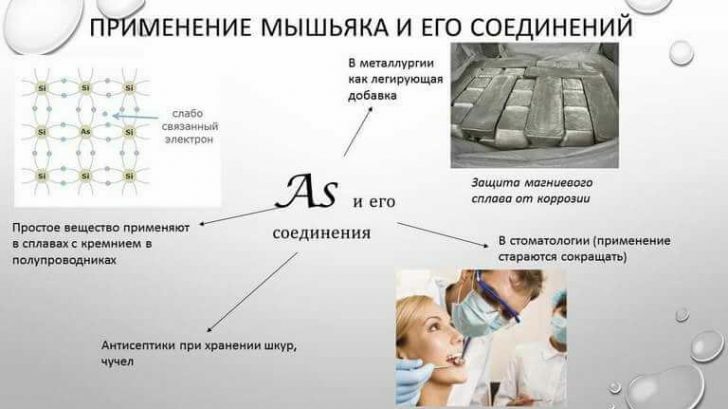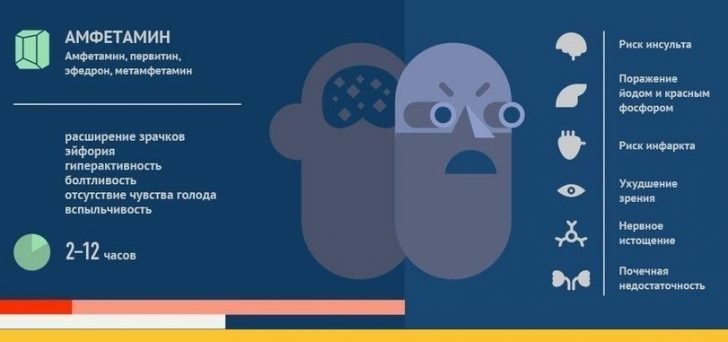Antidotes for poisoning
- Unithiol .Refers to the universal type of antidotes( antidotes), does not have high toxicity.Used for poisoning with salts of heavy metals( mercury, lead, etc.), in case of an overdose of cardiac glycosides, when chlorinated by hydrocarbons.
Unitiol administered intramuscularly every 6-8 hours on the first day after poisoning or overdose, on the second day the antidote is administered every 12 hours, on the following days - 1( maximum two) once a day.
- EDTA( tetacin calcium) .Used only for poisoning with salts of heavy metals( mercury, lead and others).The antidote is capable of forming complexes with metals, which differ in their easy solubility and low molecularness.It is this ability that allows the fast and maximum complete removal of heavy metal salts from the body through the urinary system.
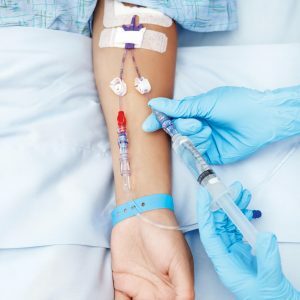 EDTA is administered simultaneously with glucose intravenously.The average daily dose for an adult is 50 mg / kg.
EDTA is administered simultaneously with glucose intravenously.The average daily dose for an adult is 50 mg / kg. - Oximides( dipiroxime and / or alloxime) .These antidotes belong to the reactors of cholinesterases.The substance is used for poisoning with anticholinesterase poisons, most effective when used in the first 24 hours.
- Nalorfin .Used for poisoning with drugs from the group of morphine.When using nalorphin, there is subsequently a withdrawal of the drug - the patient is troubled by headaches, sleep disorders, nausea, depressive conditions.
The antidote is administered intramuscularly or intravenously every 30 minutes.The total dose of the drug administered should not exceed 0.05 g.
- Lipoic acid .It is most often used as an antidote for toxins poisoning pale toadstool.The effect of using lipoic acid in fungal poisoning is possible only with the introduction of an antidote in the first few hours after poisoning.
This antidote is administered only with symptoms of severe liver damage at a dose of 0.3 grams per day for a maximum of 14 days.
- Tocopherol acetate .The drug is an antidote for poisoning with cardiac glycosides, nicotine, dichloroethane, potassium and ergot.
Introduced during the first day after poisoning in the amount of 0, 7 grams.
- Methylene blue .Used for poisoning with hydrogen sulfide, cyanides, sulfonamides, nitrates, naphthalene.
Is administered intravenously in combination with glucose.If a 1% antidote solution is used, the dosage will be 50-100 ml, in the case of a solution of 25% - 50 ml.
-
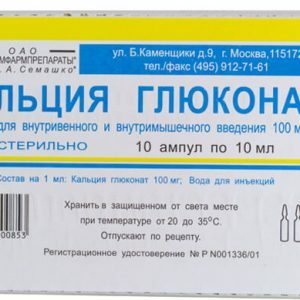 Calcium gluconate .This substance is well known to everyone and is often perceived as the simplest and harmless drug.In fact, it is calcium gluconate that is most often used as an antidote for snake bites and stinging insects.If this antidote is inadvertently inserted past the vein, then necrosis of the subcutaneous fat layer may develop.
Calcium gluconate .This substance is well known to everyone and is often perceived as the simplest and harmless drug.In fact, it is calcium gluconate that is most often used as an antidote for snake bites and stinging insects.If this antidote is inadvertently inserted past the vein, then necrosis of the subcutaneous fat layer may develop.Calcium gluconate is administered in an amount of 5-10 ml intravenously, if it is a 10% solution of the drug.It is recommended after the first injection to repeat the procedure after 8-12 hours.
- Ethyl alcohol .Antidote for poisoning with methyl alcohol and ethylene glycol.As an adverse event in use, worsening of myocardial activity is noted( its contractility decreases).
Apply 100 ml of a 30% solution of ethyl alcohol inside every 2-4 hours.If methanol is diagnosed in the blood, then the solution of ethyl alcohol is administered intravenously in combination with glucose or sodium chloride.
- Potassium chloride .The most effective as an antidote for poisoning with cardiac glycosides.As an adverse event, irritation of the gastric mucosa and hyperkalemia are noted.
This antidote is administered intravenously in combination with glucose, it is possible to ingest 50 ml of 10% potassium chloride solution.
- Sodium thiosulfate .Antidote, which is used for poisoning with lead, arsenic, hydrocyanic acid, mercury and iodine.Side effects when using sodium thiosulfate will be nausea, skin rashes of various nature and thrombocytopenia.
Introduces a 30% solution of the presented antidote for 30-50 ml intravenously, and 20 minutes after the initial administration the procedure is repeated, but already at half of this dose.
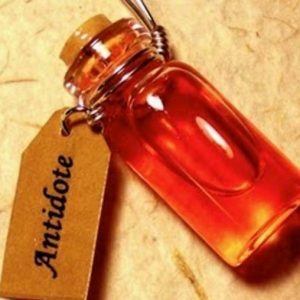 Antidotes are substances that are capable of neutralizing or suspending the action of poison in the human body.The effectiveness of antidotes depends on how accurately the poison / toxin that was ingested in the body was determined and how quickly the medical assistance was provided to the victim during poisoning.
Antidotes are substances that are capable of neutralizing or suspending the action of poison in the human body.The effectiveness of antidotes depends on how accurately the poison / toxin that was ingested in the body was determined and how quickly the medical assistance was provided to the victim during poisoning.
Kinds of antidotes
There are several types of substances under consideration - they are all used for different types of poisoning, but there are also those that fall into the category of universal.
Universal antidotes:
-
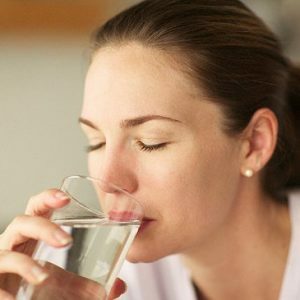 clean water in large quantities - consumed with overdoses and poisoning;
clean water in large quantities - consumed with overdoses and poisoning; - sugar-containing beverages - for example, Coca-Cola, Pepsi-Cola, Sprite and others, which perfectly "work" with overdoses and poisonings with lesions of the gastrointestinal tract;
- milk - it is believed that it "upsets" toxins in the stomach, so it is used for poisoning and overdoses;
- honey - it is used in a "pure" form, and it is based on honey water;
- fresh air - helps to relieve the condition of the victim when poisoning with toxic fumes( for example, household gas);
- caffeine - it is contained in tea and coffee, which is recommended to use, for example, when poisoning with mushrooms, food, with an overdose of medicines;
- ascorbic acid;
- drugs with laxative effect - used in overdose and poisoning, but only if there is no diarrhea in the victim;
- activated carbon - used for any poisoning with lesions of the gastrointestinal tract;
- glucose and sucrose;
- medications that can induce vomiting are used in gastrointestinal poisonings of various etiologies.
The most commonly used for acute poisoning are the following antidotes:
Antidotes in traditional medicine
Traditional medicine involves the use of medicinal plants for food poisoning or chemical compounds. The following agents are actively used as antidotes:
-
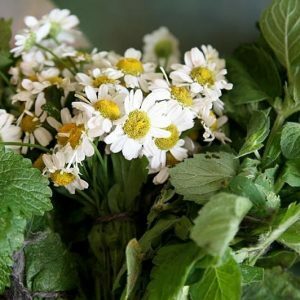 herb herb smooth;
herb herb smooth; - the roots and grass of the cyanosis are azure;
- leaves of plantain common;
- peppermint;
- the herb of St. John's wort;
- herb crochet;
- flowers of chamomile medicinal;
- branches and leaves of blackberry forest.
In addition, actively traditional medicine for poisoning uses baking soda and table salt.
Please note: should never be trusted with funds from the category of traditional medicine, because even the most effective medicinal plants in most cases can not have the proper effect.Only after consultation with a doctor is allowed the use of some folk remedies.
Any use of antidotes should be agreed with physicians - independent application can lead to deterioration of the health of the victim.In addition, an incorrectly administered dose of an antidote or an incorrectly administered course of treatment can aggravate the situation, which will lead to a fatal outcome.Do not forget that some antidotes can trigger the development of side effects - they also have a negative effect on the health of the patient.
Tsygankova Yana Aleksandrovna, medical reviewer, therapist of the highest qualification category


